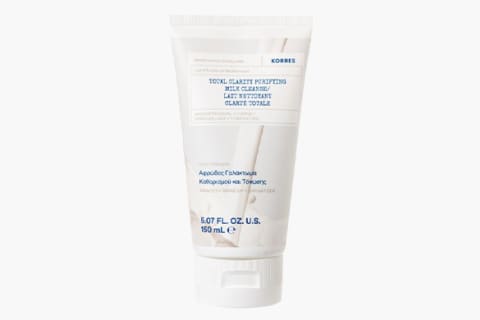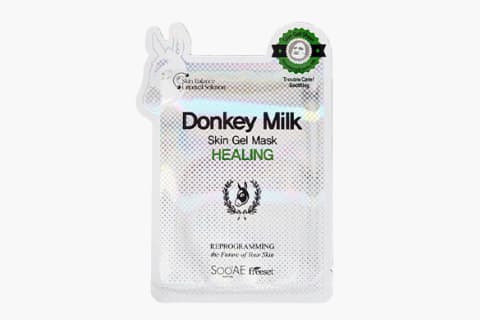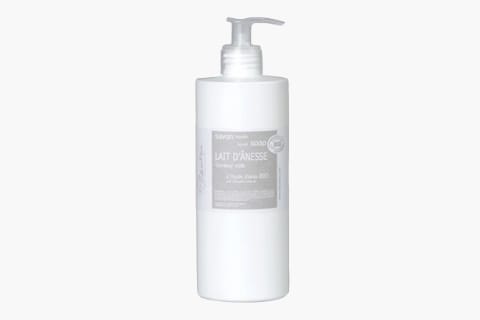It has a long and fascinating history of use. It’s rumored that Cleopatra bathed in donkey’s milk for her soft, supple skin. Centuries ago, it was used medicinally in parts of India and Africa. It’s been an ingredient used by Greek homeopathic practitioners for years, both topically and internally. It’s even been used as a substitute for breast milk, as structurally it most closely resembles human milk. Most recently, it was a K-beauty trendy ingredient formulated into sheet masks and the like. This is all to say: If time and history is any indication, there’s something here. First up, vitamin A—or what retinol is derived from. Retinol is beloved for its ability to encourage skin cell turnover and help skin cells act younger; however, it is notoriously difficult on skin. But natural alternatives, like vitamin A or bakuchiol, don’t have the same issues of irritation. (That being said: They’re also not as potent, nor do they all work in the same ways, which is a good thing for many of us with sensitive skin!) Donkey milk contains a surprisingly high amount of the antioxidant, so one of the main functions of the ingredient is skin cell renewal. Expect to see younger, brighter-looking skin with regular use. Vitamin D is one of the most important vitamins for our skin—as it can help deter premature aging and has major anti-inflammatory properties. Some studies suggest it can help ease inflammatory skin conditions1 like eczema, rosacea, and acne. However, vitamin D’s relationship with the skin is a complex one. The primary way humans get it is through UV exposure, but we also know that too much of that has adverse effects on the skin. It’s vital to take it as a supplement for your overall health, yes, but you can also help soothe stressed-out skin with it when you use it topically. Donkey milk naturally contains the vitamin, unlike other milks. Then we have a host of other ingredients, like vitamin C. (“Vitamin C is one of the few active ingredients that can benefit all skin types,” says Elizabeth Tanzi, M.D., a board-certified dermatologist.) This can help improve collagen production in the skin, as well as fight free radicals and help overall tone. Then there are the proteins and fatty acids to help moisture skin as well. Other than that, it’s a fairly mild ingredient and should be suitable for most skin types. Do be sure to do a patch test prior to applying it on your face, as we recommend with any new product or ingredient.





